Since ChatGPT began to flourish in Vietnam in early 2023, followed by many other generative AI tools from the US (Gemini) or China (DeepSeek), the domestic education sector has undergone many remarkable changes in teaching and learning methods. Notably, this summer, for the first time, the Ministry of Education and Training organized an AI training program for teachers and education managers nationwide, attracting more than 250,000 registrants.
N MANY AI TRAINING ACTIVITIES
It is known that the training program includes 5 in-depth topics, from basic knowledge of AI and UNESCO's AI competency framework to practical applications such as integrating AI in teaching, designing tests, creating learning products and building educational chatbots. These contents are carried out by Dr. Tran Duc Linh and Dr. Pham Chi Thanh, working at RMIT University Vietnam. This activity is completely free and lasts until August 2.
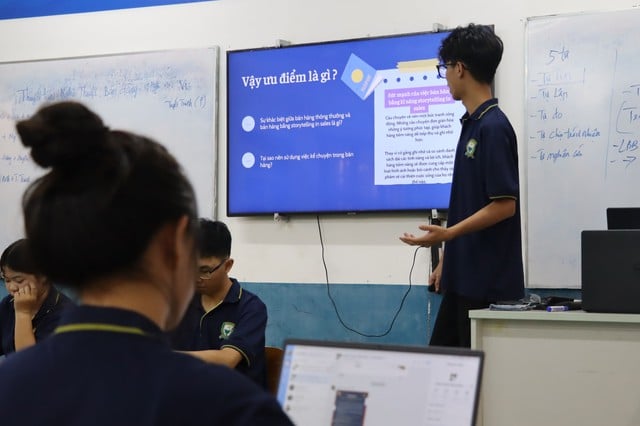
Students present using AI tool Canva. The use of AI in teaching and learning is becoming more and more popular.
PHOTO: NVCC
Among the participants was Master Pham Quynh Mai, a teacher at Dong Thanh Primary School ( Nghe An ). Not only did she listen attentively to the lecture, Ms. Mai also carefully took notes of each line shared by the lecturer in her notebook and presented them through a mind map to increase her ability to remember. These notebook pages were then posted by her on the group supporting teachers using AI to share knowledge, attracting thousands of interactions.
"In addition to the above training program, last school year I also attended a training program on AI applications organized by the school, and at the same time self-studied via the internet. AI is helping us innovate teaching methods and improve educational effectiveness. This is an important step for teachers to become creative and effective leaders in the new educational environment," said Master Mai.
Currently, Ms. Mai uses many different AI tools, such as ChatGPT, Canva, Google Gemini, Google AI Studio, Microsoft CoPilot, Suno AI, PixVerse AI. According to her, applying AI in education creates excitement for primary school students to actively explore lessons, while helping them practice reading, writing, and solving math problems without having to rely entirely on teachers.
Not only at the management level, many training and guidance activities on the use of AI in education are also organized by individuals and units, including the English Teaching Research Cooperation Network (TERECONET). Specifically, in the recent English Teaching Science Research Summer School (TESS) event, in addition to professional training, the unit also organized for the first time an interdisciplinary dialogue between education and AI for 130 participants.
Master Tran Thanh Vu, PhD student at Durham University (UK) and Head of the TESS Organizing Committee, said that adding this new activity comes from the actual needs of teachers. Because in the context of strong AI development, exchange and learning within the education sector is not enough.
"When different disciplines learn from each other - such as foreign language teachers approaching technological thinking, while AI experts listen to classroom reality - it will create resonance and open up many creative solutions for teaching and learning," said Master Tran Thanh Vu, adding: "When leaving the "safe zone" to listen, interact and learn from AI experts, educators will also have new and more updated perspectives on technology as well as practical application models."
Mr. Vu added that the most important thing that the speakers in the interdisciplinary dialogue affirmed was that AI cannot currently replace the role of teachers. But because of that, teachers need to understand more deeply, not only about AI but also about students and themselves in the teaching process.
"Currently, the greatest need of teachers is not only knowing how to create prompts (commands to use AI - PV ) or which AI tools to use, but also understanding when to use AI, for what pedagogical purposes, and how to use it to be truly effective and humane in the classroom," said Master Vu, adding: "In the coming time, we will continue to organize interdisciplinary dialogue activities, creating a space for teachers and AI experts to learn from each other."
CONCERNS WHEN USING AI TO ASSIST IN TEACHING
Mr. Do Hoai Nam, a marketing lecturer, currently teaches 9+ students and university students at VABIS-Xanh Tue Duc International College (HCMC). The 25-year-old teacher shared that during this summer vacation, he taught himself how to use many AI tools for designing images, scripts, and program frameworks, as well as to support academic work, paperwork, and planning what needs to be done.
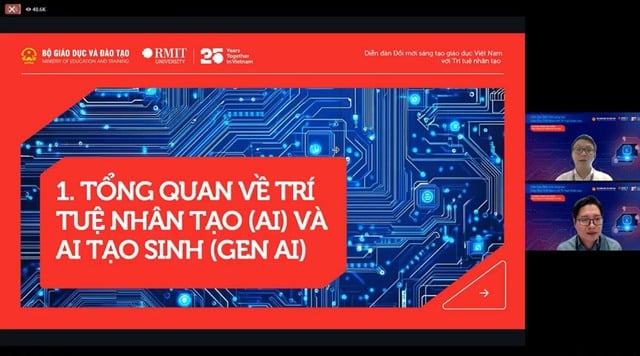
Online discussion session in the AI training program for teachers and education managers nationwide, jointly organized by the Ministry of Education and Training and RMIT University Vietnam
PHOTO: SCREENSHOT
There are many reasons that motivate male teachers to "master" AI. First is due to job requirements. Second is because most students in the class are also using AI for learning, and as a teacher, he also has to learn and find out if there is a way for AI to support students better. However, Mr. Nam is also sometimes worried, because along with the advantage of helping to shorten the time to synthesize information, AI also has a big disadvantage of limiting students' thinking ability.
"Currently, when encountering a difficult problem, instead of thinking about how to solve it, the first thing students do is open AI and ask for help. This reality causes students to lose the ability to connect data and solve problems. Therefore, we always emphasize that students should only use AI in their studies as a tool, not see it as a "compass" that can handle all problems," Mr. Nam confided.
"It is undeniable that AI is very useful in fields such as marketing and economics, but you need to have enough knowledge to be able to use it optimally," Mr. Nam added.
WHO TEACHES KNOWLEDGE, BUT TEACHERS ARE THE ONE WHO INSPIRES
Speaking to Thanh Nien reporters at a recent international conference on language teaching organized by Ton Duc Thang University (HCMC), Associate Professor and Doctor of Applied Linguistics Le Van Canh, a former lecturer at the University of Foreign Languages (Hanoi National University), said that AI "is now a part of life". However, Mr. Canh said that AI does not make teaching easier for teachers, but on the contrary, because teachers now have to learn many new skills with the combination of AI.
"AI is now better than teachers in terms of imparting knowledge to students. Therefore, the current story is how teachers help students use the knowledge provided by AI. In addition, teachers also need to have pedagogical methods suitable for AI, to avoid it being counterproductive such as making students lazy to study and lazy to think. For example, from the data and information provided by AI, what questions will teachers ask to help students develop creativity and thinking ability? That is a difficult story," said Mr. Canh.
Associate Professor Dr. Le Van Canh also emphasized that although teachers may not know as much as AI, they play an extremely important role in inspiring learners. This is also something that AI cannot do yet.
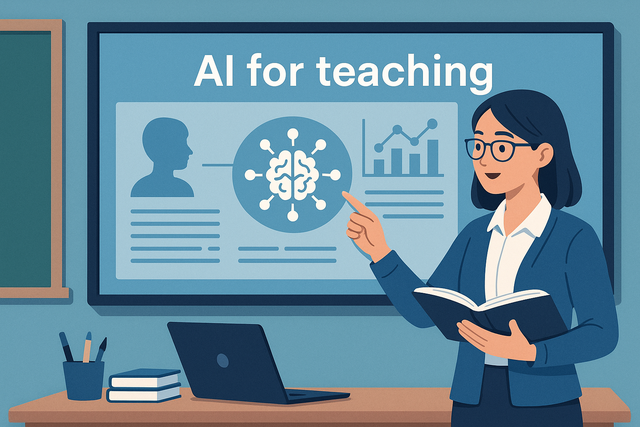
Teachers may not know as much as AI, but they play a very important role in inspiring learners.
PHOTO: CHATGPT
Meanwhile, Dr. Willy A. Renandya, a senior lecturer at the National Institute of Education at Nanyang Technological University (Singapore), informed that in the context of new AI tools appearing almost every day, teachers only need to use about 5 main tools and do not need to know how to use all of them. "Don't feel overwhelmed, but choose the tools that are truly useful for you and your students," Dr. Renandya told Thanh Nien .
Dr. Renandya also advised teachers to focus on improving their pedagogy first before turning to technology, and recommended that teachers apply five core educational principles. These are personalized learning; engaged learning (engaging 90% of students for 90% of class time); authentic learning (through real-life activities, not just teaching theory in books); feedback; and collaborative learning.
“Technology won’t make a difference if we don’t use it based on core educational principles,” Dr. Renandya stressed.
Source: https://thanhnien.vn/giao-vien-chu-dong-hoc-cach-dung-ai-185250731201211105.htm








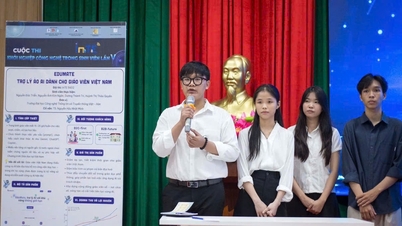







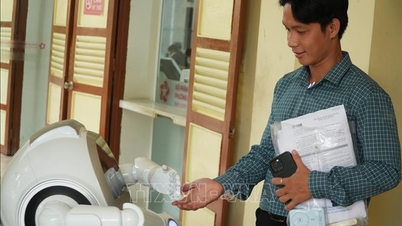




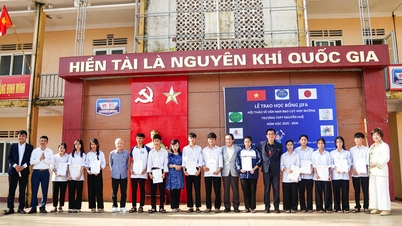














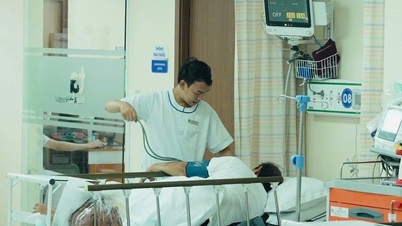









































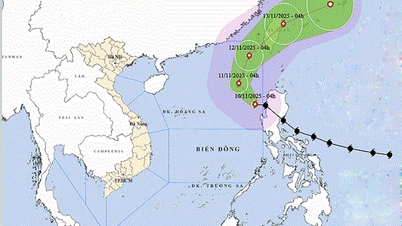






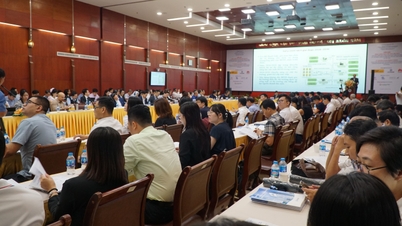











![Dong Nai OCOP transition: [Article 3] Linking tourism with OCOP product consumption](https://vphoto.vietnam.vn/thumb/402x226/vietnam/resource/IMAGE/2025/11/10/1762739199309_1324-2740-7_n-162543_981.jpeg)












Comment (0)